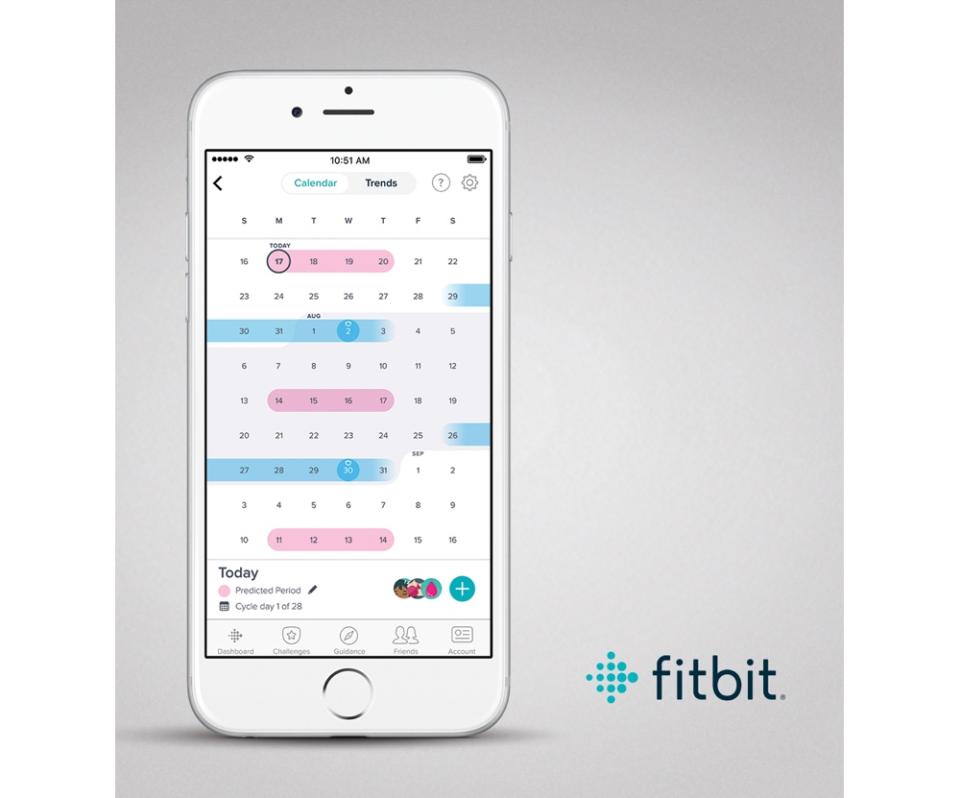Fitbit will help women track their periods
Fitbit (FIT) is the name in fitness trackers. The company, which has seen its stock hover around the $5 to $6 per share mark since early 2017, is synonymous with the consumer health tech industry thanks to its stable of devices that allow users to track everything from heart rate to the quality of sleep.
Now the brand is setting its sights on its female consumers with its all-new female health tracking feature. Available on the new $199 Versa smartwatch, and via an update to its existing Ionic watch, female health tracking will help users develop a better understanding of their overall health by allowing them to track the various aspects of their menstrual cycles.
According to Fitbit, the feature provides women with the means to see how their periods impact different aspects of their lives, ranging from the quality of their sleep to their overall activity levels.
“This is something that we’ve heard many, many of our users request given our brand’s strength with women,” explained Fitbit CEO James Park. “The way we feel about female health tracking and its impact on people’s overall health and fitness for women is that this is really the next big thing for us.”
The feature will allow women to log data on their periods into the Fitbit app and record the various symptoms they experience including headaches, cramps and acne. As you log more information, the app and Fitbit’s proprietary cycle algorithm will be able to help you more accurately predict when you can expect your next period.

But a woman’s cycle isn’t a simple on-off affair. Different things like exercise, overall lifestyle and the like can drastically impact a woman’s period. By using data from the female health tracking feature, users will be able to determine when they experience their worst symptoms, monitor their sleep, exercise and overall health, and then be able to adjust their behavior to decrease the impact their period has on them.
“We feel that the inclusion of female health tracking is a huge step forward for this category and one that’s been, I think, pretty ignored by all of the major players,” Park said. “I mean there are apps out there, but no one has really said, ‘This is the next big thing in terms of making sure people are taking the right steps in terms of their health and fitness.’ “

Importantly, the female health tracking feature will educate users about menstrual cycles in general. Dr. Katharine White who serves as an associate professor of obstetrics and gynecology at Boston University explained, many women don’t even know how long their cycles actually last.
White, a Fitbit adviser, said that the new feature could create one of the largest databases of menstrual health metrics in the world, which in turn, would help researchers and health care professionals with the ability to study women’s cycles using real-world data.
“Female health tracking will empower women with a greater understanding of their menstrual cycles in conjunction with their physical and mental health, as they start to recognize what are normal trends over time versus what could be an issue to share with their doctor,” she said.
The female health tracker won’t just provide users with more information about their periods, though. Fitbit says it will also help women understand when they are most fertile, something that can prove extremely helpful for couples trying to conceive.
More from Dan:
Despite Trump’s meeting, video games and violence still down add up
Vero is the anti-Facebook social network everyone is talking about
Sony’s PlayStation Vue just became an even better cable TV killer
Samsung’s Galaxy S9 and S9 Plus bring major camera improvements
Email Daniel Howley at [email protected]; follow him on Twitter at @DanielHowley.
Follow Yahoo Finance on Facebook, Twitter, Instagram, and LinkedIn

 Yahoo Finance
Yahoo Finance 